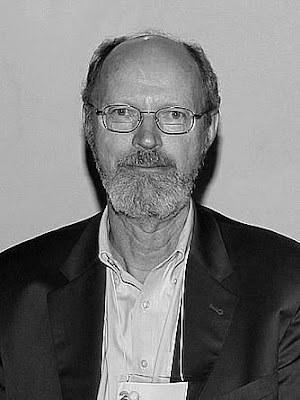Each week, MyHealthNewsDaily asks the experts to answer questions about your health.
This week, we asked neurologists and geriatricians: What's the best way to improve your memory? Here's what they said.
Dr. Jane F. Potter, chief of the Division of Geriatrics and Gerontology at the University of Nebraska Medical Center; past president of the American Geriatrics Society:
"A person needs to remain mentally active. What actually happens is that as we get older, connections in the brain — what we call synapses — really are stimulated by mental activity, so this helps to preserve mental ability. Just being well-educated is a good idea and so, again, the idea is that education and mental stimulation helps to create and preserve and develop new connections. So taking a course later, after one's normally left formal schooling, is a good idea.
"In terms of diet, following what's otherwise a good heart-healthy diet is good for memory because what's good for your heart is good for your brain. And you can actually stimulate develop of new brain cells with physical activity.
"There's some evidence that you can do your brain some good with stress reduction. Those are cognitive-behavioral types of programs that people do and relaxation techniques, and sometimes there are classes that teach one to do those things. There are human studies where if you measure stress as being jobless and in poverty, the more of those periods of stress you have, the more likely you are to develop dementia or serious memory problems. And once again, people who are under stress acutely will have more trouble with focus and concentration."
***
Dr. James Mastrianni, Associate Professor of Neurology; Co-Director, Center for Comprehensive Care and Research on Memory Disorders at the University of Chicago Medical Center:
"Are there things one can do to avoid developing Alzheimer's disease or memory decline associated with aging? The answer is yes. Some things are obvious, while others may be less apparent. Doing crossword puzzles, solving word jumbles, playing Sudoku or other 'brain exercises' can't hurt, but they have not yet been proven to improve inherent memory or delay the onset of Alzheimer's disease.
"Lifestyle changes that have shown benefit include routine physical exercise, staying socially active and eating a heart-healthy diet. At least 30 minutes a day of physical activity such as walking, biking or any other aerobic workout gets your heart pumping and improves oxygenation of brain cells. Social activity may include staying actively working, or volunteering in local organizations or clubs. Research suggests that having a large network of social interactions helps to maintain good brain function and even delay Alzheimer's disease.
"A heart-healthy diet low in cholesterol and fat, not only reduces overall weight, but it lowers risk for cardiovascular disease, diabetes and stroke, all of which can contribute to impaired brain function and memory. Some foods, by virtue of their anti-oxidant potential, may protect against memory decline and Alzheimer's disease. Omega-3 fatty acid is thought to promote the health of the membrane of brain cells or act as an antioxidant.
"Finally, eliminating unhealthy practices such as cigarettes, too little sleep, and too much stress can't hurt and are likely to help your brain function better."
***
Dr. Gary Small, professor of psychiatry and biobehavioral sciences, Semel Institute for Neuroscience and Human Behavior and director of the Memory & Aging Research Center, at the University of California, Los Angeles:
"The most effective method for remembering almost anything, especially the most common memory challenge of remembering someone's name uses three basic memory skills I call: LOOK, SNAP, CONNECT. First, make sure you really take the time to focus on the name (LOOK). Then, create mental snapshots (SNAP), visual images of the name and the face. Finally, CONNECT the name snap with the face snap by creating additional images so you can easily retrieve the information later.
"Here's how it works: To create a visual snapshot or SNAP for the face, pick out a facial feature that may be easy to remember. Look at the person's face and search for the most distinguishing feature, whether it is a small nose, large ears, unusual hairdo or deep dimples. Often the first outstanding feature you notice is the easiest to recall later.
"To create the name SNAP, note that all names can be placed into two groups: those that have meaning and invoke visual images, and those that don't. Names like Katz, Brooks, Carpenter, Bishop, Siegel, White or Silver all have a meaning that can bring an image to mind. When I meet Mr. Siegel, I think of a sea gull, and I see a couple of cats playing together to help me remember Mrs. Katz. When I meet a Bill for the first time, I might see a dollar bill. A Democrat might instead first see our former president, Bill Clinton. Meeting Ms. Lincoln might make you think of a Lincoln Continental automobile, or the Lincoln Memorial."
***
Dr. Monique M. Williams, assistant professor of medicine and psychiatry in the Division of Geriatrics and Nutritional Science at Washington University School of Medicine in St. Louis, Mo.:
"Maintaining and improving memory is a growing area of research, and optimizing memory is important over the lifespan. We need to have an environment that nurtures memory function. Be sure to have an area that is quiet and free from distractions. Multitasking is not an efficient means to accomplish tasks. Spreading out learning, rather than cramming, can help you to retain information.
"Many people find mnemonics to be useful. For example, suppose you meet a new student in yoga class who just arrived in town from Baltimore. Jane Doe's name may be easier to remember if you have a memory device such as 'Jane Doe from yoga' or 'Jane Doe from Baltimore.'
"Maintaining memory as we get older is still a growing field of research, so much of the information that we have is preliminary, and more studies are needed.These early studies suggest that the idea of 'use it or lose it' is important. Doing activities that challenge your mind may be helpful. Some studies suggest that these brain exercises are more beneficial when socialization is included, such as a book club, trivia night or games. Physical activity and a heart healthy diet may be helpful for maintaining memory and thinking as well."
***
Dr. Melanie Shulman, assistant professor of neurology and associate director of Cognitive and Behavioral Neurology at the Pearl Barlow Center for Memory Evaluation and Treatment at the Silberstein Alzheimer's Institute at NYU Langone Medical Center:
"There are four main pillars of keeping healthy memory or maintaining brain fitness: healthy diet, being physically fit (exercise), keeping mentally stimulated and avoiding depression. There is no single entity that we can modify that will decrease the likelihood of someone developing Alzheimer's. It's a combination of applying these different modalities.
"Having a good diet — low in saturated fats, high in vegetables, high in fiber — does lower the likelihood of developing cerebrovascular disease, which we know is associated with declining memory. And of all the things that are studied, the thing with the most consistent benefits is aerobic exercise. When you start exercising, there's evidence of improvement of metabolic brain function. When you add a healthy diet as well as exercise, it's worth more than the sum of their parts.
"The issue with avoiding depression is a controversial one: Is depression itself a risk factor for dementia, or is the early sign of depression the earliest sign of dementia itself? It looks increasingly like it's a risk factor for Alzheimer's disease, and there's a whole host of complicated reasons, but it does seem that if you keep stress-free and depression-free, that in and of itself is insurance for healthy aging.
"The fourth pillar is keeping intellectually stimulated. The more educated you are, that is a little bit of a buffer for prevention of Alzheimer's disease. And if you have an intellectually stimulating job, that creates something of a buffer called cognitive reserve. Maybe you're building up a more densely networked brain, and you're more able to resist the earliest pathological changes that are associated with Alzheimer's disease."
Pass it on: Regularly exercising, eating healthy foods, keeping intellectually stimulated and avoiding depression and stress are the main ways to preserve your memory. Memory tricks can also improve your short-term memory.
Source: http://www.myhealthnewsdaily.com/5-experts-answer-improve-memory-1325
This week, we asked neurologists and geriatricians: What's the best way to improve your memory? Here's what they said.
Dr. Jane F. Potter, chief of the Division of Geriatrics and Gerontology at the University of Nebraska Medical Center; past president of the American Geriatrics Society:
"A person needs to remain mentally active. What actually happens is that as we get older, connections in the brain — what we call synapses — really are stimulated by mental activity, so this helps to preserve mental ability. Just being well-educated is a good idea and so, again, the idea is that education and mental stimulation helps to create and preserve and develop new connections. So taking a course later, after one's normally left formal schooling, is a good idea.
"In terms of diet, following what's otherwise a good heart-healthy diet is good for memory because what's good for your heart is good for your brain. And you can actually stimulate develop of new brain cells with physical activity.
"There's some evidence that you can do your brain some good with stress reduction. Those are cognitive-behavioral types of programs that people do and relaxation techniques, and sometimes there are classes that teach one to do those things. There are human studies where if you measure stress as being jobless and in poverty, the more of those periods of stress you have, the more likely you are to develop dementia or serious memory problems. And once again, people who are under stress acutely will have more trouble with focus and concentration."
Dr. James Mastrianni, Associate Professor of Neurology; Co-Director, Center for Comprehensive Care and Research on Memory Disorders at the University of Chicago Medical Center:
"Are there things one can do to avoid developing Alzheimer's disease or memory decline associated with aging? The answer is yes. Some things are obvious, while others may be less apparent. Doing crossword puzzles, solving word jumbles, playing Sudoku or other 'brain exercises' can't hurt, but they have not yet been proven to improve inherent memory or delay the onset of Alzheimer's disease.
"Lifestyle changes that have shown benefit include routine physical exercise, staying socially active and eating a heart-healthy diet. At least 30 minutes a day of physical activity such as walking, biking or any other aerobic workout gets your heart pumping and improves oxygenation of brain cells. Social activity may include staying actively working, or volunteering in local organizations or clubs. Research suggests that having a large network of social interactions helps to maintain good brain function and even delay Alzheimer's disease.
"A heart-healthy diet low in cholesterol and fat, not only reduces overall weight, but it lowers risk for cardiovascular disease, diabetes and stroke, all of which can contribute to impaired brain function and memory. Some foods, by virtue of their anti-oxidant potential, may protect against memory decline and Alzheimer's disease. Omega-3 fatty acid is thought to promote the health of the membrane of brain cells or act as an antioxidant.
"Finally, eliminating unhealthy practices such as cigarettes, too little sleep, and too much stress can't hurt and are likely to help your brain function better."
***
Dr. Gary Small, professor of psychiatry and biobehavioral sciences, Semel Institute for Neuroscience and Human Behavior and director of the Memory & Aging Research Center, at the University of California, Los Angeles:
"The most effective method for remembering almost anything, especially the most common memory challenge of remembering someone's name uses three basic memory skills I call: LOOK, SNAP, CONNECT. First, make sure you really take the time to focus on the name (LOOK). Then, create mental snapshots (SNAP), visual images of the name and the face. Finally, CONNECT the name snap with the face snap by creating additional images so you can easily retrieve the information later.
"Here's how it works: To create a visual snapshot or SNAP for the face, pick out a facial feature that may be easy to remember. Look at the person's face and search for the most distinguishing feature, whether it is a small nose, large ears, unusual hairdo or deep dimples. Often the first outstanding feature you notice is the easiest to recall later.
"To create the name SNAP, note that all names can be placed into two groups: those that have meaning and invoke visual images, and those that don't. Names like Katz, Brooks, Carpenter, Bishop, Siegel, White or Silver all have a meaning that can bring an image to mind. When I meet Mr. Siegel, I think of a sea gull, and I see a couple of cats playing together to help me remember Mrs. Katz. When I meet a Bill for the first time, I might see a dollar bill. A Democrat might instead first see our former president, Bill Clinton. Meeting Ms. Lincoln might make you think of a Lincoln Continental automobile, or the Lincoln Memorial."
***
Dr. Monique M. Williams, assistant professor of medicine and psychiatry in the Division of Geriatrics and Nutritional Science at Washington University School of Medicine in St. Louis, Mo.:
"Maintaining and improving memory is a growing area of research, and optimizing memory is important over the lifespan. We need to have an environment that nurtures memory function. Be sure to have an area that is quiet and free from distractions. Multitasking is not an efficient means to accomplish tasks. Spreading out learning, rather than cramming, can help you to retain information.
"Many people find mnemonics to be useful. For example, suppose you meet a new student in yoga class who just arrived in town from Baltimore. Jane Doe's name may be easier to remember if you have a memory device such as 'Jane Doe from yoga' or 'Jane Doe from Baltimore.'
"Maintaining memory as we get older is still a growing field of research, so much of the information that we have is preliminary, and more studies are needed.These early studies suggest that the idea of 'use it or lose it' is important. Doing activities that challenge your mind may be helpful. Some studies suggest that these brain exercises are more beneficial when socialization is included, such as a book club, trivia night or games. Physical activity and a heart healthy diet may be helpful for maintaining memory and thinking as well."
***
Dr. Melanie Shulman, assistant professor of neurology and associate director of Cognitive and Behavioral Neurology at the Pearl Barlow Center for Memory Evaluation and Treatment at the Silberstein Alzheimer's Institute at NYU Langone Medical Center:
"There are four main pillars of keeping healthy memory or maintaining brain fitness: healthy diet, being physically fit (exercise), keeping mentally stimulated and avoiding depression. There is no single entity that we can modify that will decrease the likelihood of someone developing Alzheimer's. It's a combination of applying these different modalities.
"Having a good diet — low in saturated fats, high in vegetables, high in fiber — does lower the likelihood of developing cerebrovascular disease, which we know is associated with declining memory. And of all the things that are studied, the thing with the most consistent benefits is aerobic exercise. When you start exercising, there's evidence of improvement of metabolic brain function. When you add a healthy diet as well as exercise, it's worth more than the sum of their parts.
"The issue with avoiding depression is a controversial one: Is depression itself a risk factor for dementia, or is the early sign of depression the earliest sign of dementia itself? It looks increasingly like it's a risk factor for Alzheimer's disease, and there's a whole host of complicated reasons, but it does seem that if you keep stress-free and depression-free, that in and of itself is insurance for healthy aging.
"The fourth pillar is keeping intellectually stimulated. The more educated you are, that is a little bit of a buffer for prevention of Alzheimer's disease. And if you have an intellectually stimulating job, that creates something of a buffer called cognitive reserve. Maybe you're building up a more densely networked brain, and you're more able to resist the earliest pathological changes that are associated with Alzheimer's disease."
Pass it on: Regularly exercising, eating healthy foods, keeping intellectually stimulated and avoiding depression and stress are the main ways to preserve your memory. Memory tricks can also improve your short-term memory.
Source: http://www.myhealthnewsdaily.com/5-experts-answer-improve-memory-1325
| Share | Tweet |















